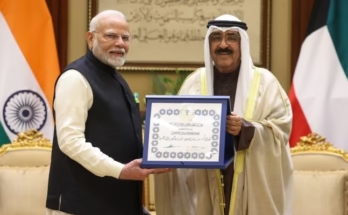 Geneva: The World Health Organization (WHO) has issued a stark warning about a troubling global surge in COVID-19 cases, which includes outbreaks at the Olympics and shows no signs of abating.
Geneva: The World Health Organization (WHO) has issued a stark warning about a troubling global surge in COVID-19 cases, which includes outbreaks at the Olympics and shows no signs of abating.
Dr. Maria Van Kerkhove, a leading COVID-19 specialist at the WHO, addressed journalists in Geneva on Tuesday, highlighting that the virus remains widespread across all regions. “COVID-19 is still very much with us,” Dr. Van Kerkhove said. “It is circulating in every country.”
Recent data from the WHO’s sentinel-based surveillance system, which monitors 84 countries, reveals an alarming increase in positive test rates for SARS-CoV-2.
Overall test positivity rates have risen above 10 percent, with Europe reporting even higher levels exceeding 20 percent.
The resurgence is evident in several regions, including the Americas, Europe, and the western Pacific. Wastewater surveillance data suggests the true extent of viral circulation may be up to 20 times higher than current reported figures.
This is especially concerning given that respiratory viruses typically surge during colder months, making the current summer spikes unusual.
Dr. Van Kerkhove also pointed out that recent surges have affected high-profile events, such as the Olympics, where at least 40 athletes have tested positive. “In recent months, regardless of the season, many countries have experienced COVID-19 surges,” she noted.
The WHO is also monitoring the potential emergence of more severe variants of the virus. There is growing concern that new strains could evade detection and be resistant to existing treatments.
To combat the spread, the WHO is calling for an intensified focus on vaccination efforts, particularly for high-risk groups. Dr. Van Kerkhove urged governments to ensure that individuals in these groups receive a COVID-19 vaccine booster at least once every 12 months.
While hospitalisations, including intensive care admissions, remain significantly lower than during the pandemic’s peak, the WHO emphasizes the need for continued vigilance. “It is crucial to reduce the risk of infection and severe disease by staying up-to-date with vaccinations,” Dr. Van Kerkhove stressed.
The availability of vaccines has decreased over the past 12 to 18 months due to a reduction in producers, making it challenging to maintain previous levels of vaccine distribution. Dr. Van Kerkhove acknowledged this decline but emphasized the ongoing demand for available COVID-19 vaccines.
Additionally, research into nasal vaccines is ongoing, which could potentially address transmission and mitigate the risk of new variants. “I am concerned,” Dr. Van Kerkhove admitted. “With such low vaccine coverage and high circulation rates, there is a significant risk that a more severe variant could lead to increased severe disease among at-risk populations.”
As the virus continues to evolve, the WHO urges global cooperation to bolster vaccination efforts and stay vigilant against emerging threats.



